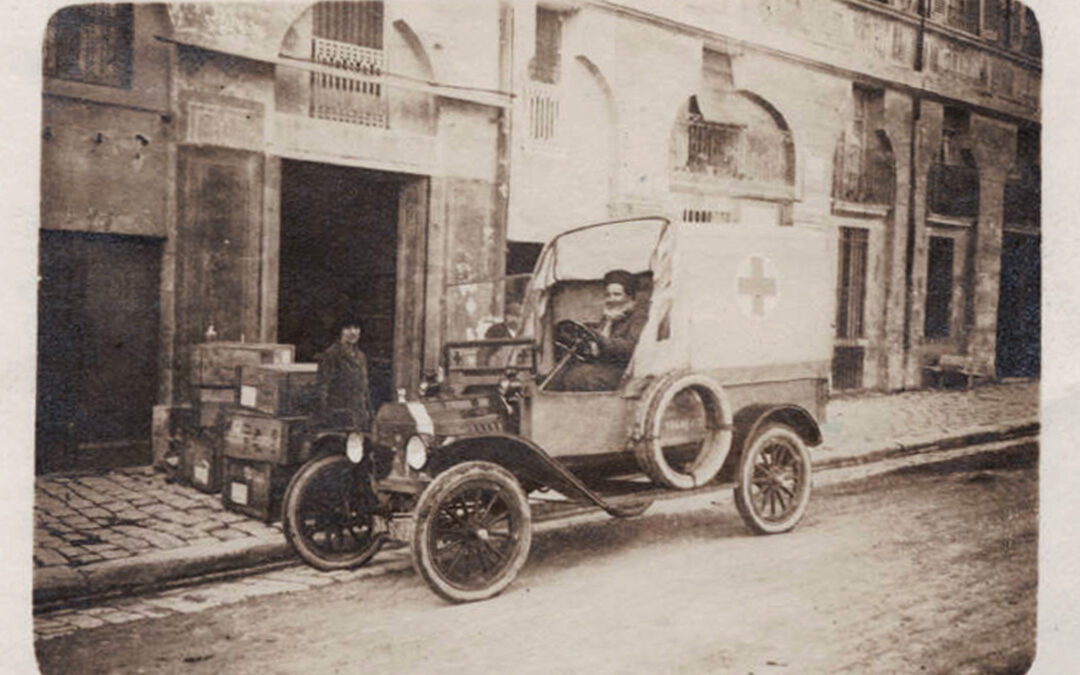 Rogers, a nineteen-year-old Private first-class soldier, met Stein and Toklas in 19717 Nimes while on furlough. Working with an ambulance unit attached to the French army, the U.S. had not yet entered the war. Rogers followed Stein and Toklas into the Hotel de...
Rogers, a nineteen-year-old Private first-class soldier, met Stein and Toklas in 19717 Nimes while on furlough. Working with an ambulance unit attached to the French army, the U.S. had not yet entered the war. Rogers followed Stein and Toklas into the Hotel de...
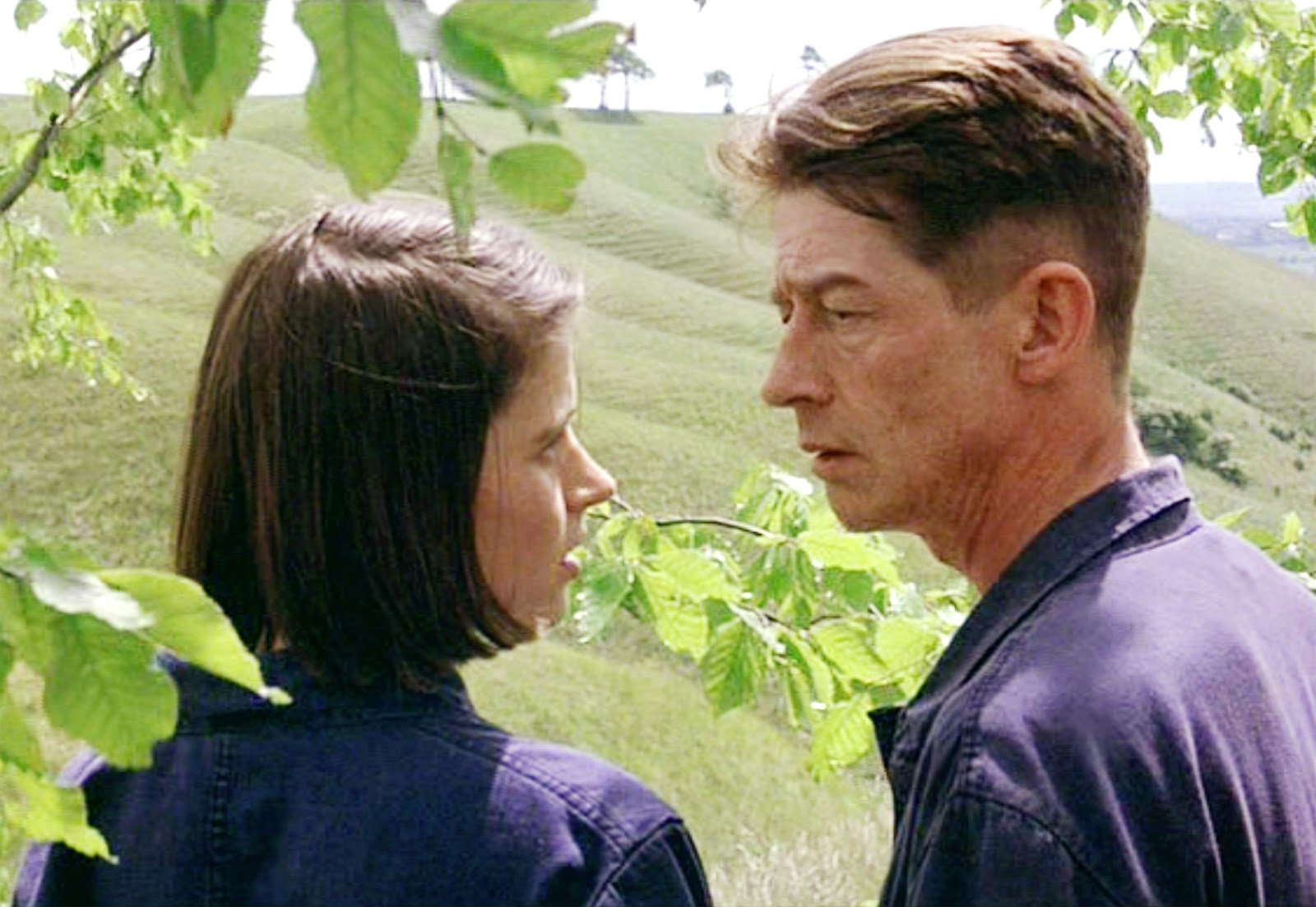 Winston Smith’s relationship with Julia (no last name) is among the most satisfying moments in Orwell’s 1984. It’s an interlude of romantic entanglement that begins a lustful relationship ending in pain and utter defeat. Leaving the dust of London for a safe place in...
Winston Smith’s relationship with Julia (no last name) is among the most satisfying moments in Orwell’s 1984. It’s an interlude of romantic entanglement that begins a lustful relationship ending in pain and utter defeat. Leaving the dust of London for a safe place in...
![Laurent de Brunhoff’s Babar’s Picnic [Pique-nique Chez Babar] (1949)](https://picnicwit.com/wp-content/uploads/2014/01/Laurent-de-Brunhoff.-Babars-Picnic-1949-1080x675.jpg) Why De Brunhoff allowed this title Babar’s Picnic is a muddle. It’s not about Babar’s picnic! It’s about the young elephants’ picnic and their adventures. Importantly, the story’s portrayal of African Blacks and Native Americans was...
Why De Brunhoff allowed this title Babar’s Picnic is a muddle. It’s not about Babar’s picnic! It’s about the young elephants’ picnic and their adventures. Importantly, the story’s portrayal of African Blacks and Native Americans was...
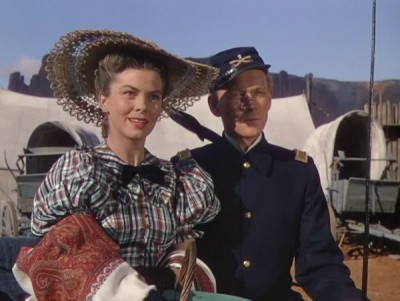 Ford’s jokey picnic episode is among the best. It plays counter to expectations because the picnic never happens. The situation is built around a conflict of rivals at an Army cavalry outpost in the 1870s. Miss Olivia Dandridge is flirting with Lt. Pennell and...
Ford’s jokey picnic episode is among the best. It plays counter to expectations because the picnic never happens. The situation is built around a conflict of rivals at an Army cavalry outpost in the 1870s. Miss Olivia Dandridge is flirting with Lt. Pennell and...
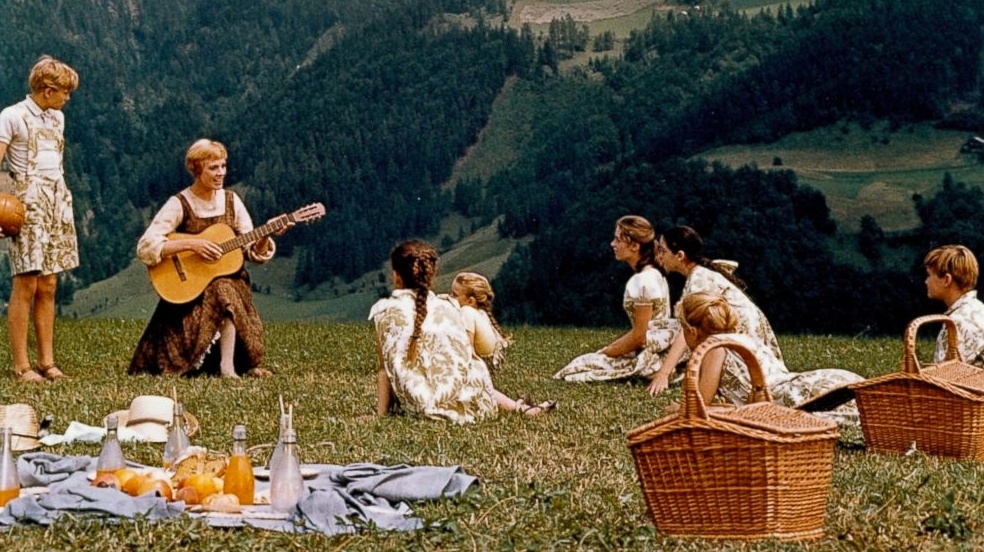 The picnic is missing in Maria Augusta von Trapp’s The Story of the von Trapp Family Singers, Liebeneiner’s film Die Trapp-Familie, and the Broadway musical of The Sound of Music. Robert Wise and screenwriter Ernest Lehman wrote it for The Sound of Music. Set on the...
The picnic is missing in Maria Augusta von Trapp’s The Story of the von Trapp Family Singers, Liebeneiner’s film Die Trapp-Familie, and the Broadway musical of The Sound of Music. Robert Wise and screenwriter Ernest Lehman wrote it for The Sound of Music. Set on the...
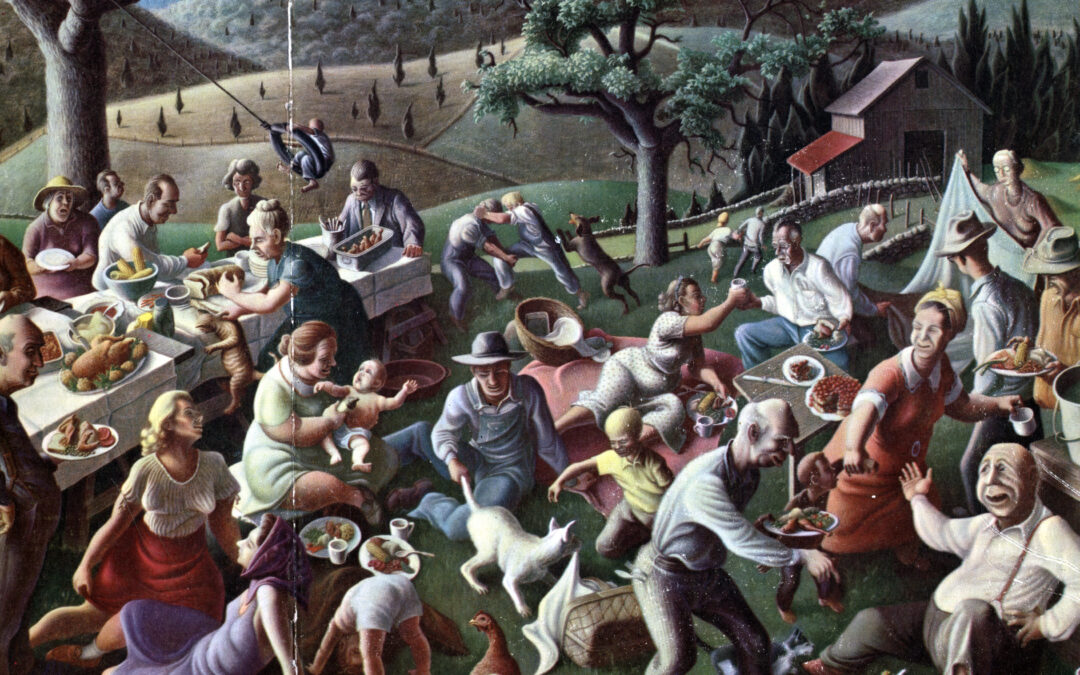 Medearis’ Family Reunion is a joyous and humorous evocation of an American extended family gathering. Featured Image: Roger Medearis. Family Reunion (1950). Colored lithograph.
Medearis’ Family Reunion is a joyous and humorous evocation of an American extended family gathering. Featured Image: Roger Medearis. Family Reunion (1950). Colored lithograph.
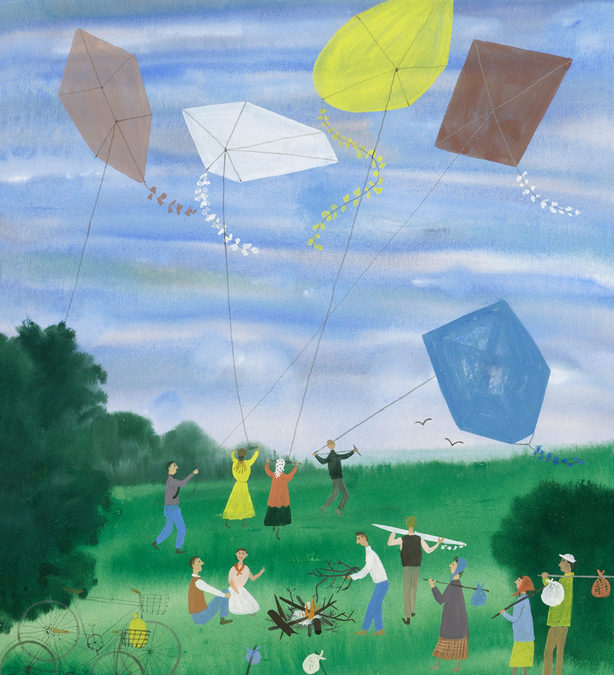 A very happy picnic. See Doris Emrick Lee’s <em>High Flying Picnic</em> (1950). Gouache on board 16.5 x 12.75 in. (41.9 x 32.4 cm.)
A very happy picnic. See Doris Emrick Lee’s <em>High Flying Picnic</em> (1950). Gouache on board 16.5 x 12.75 in. (41.9 x 32.4 cm.)
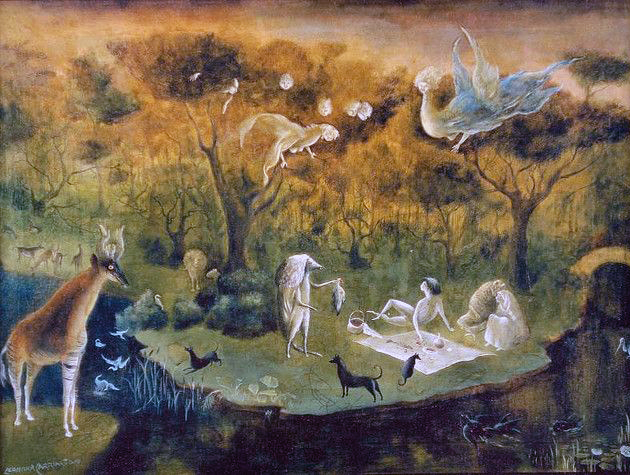 As with many of Carrington’s surrealistic paintings, they are enigmas. Maybe they are snapshots of her inner life—a mix of personal relationships, dreams, alchemy, astrology, myth, and probably alcohol and drugs. You may find the compositions appealing dream-visions...
As with many of Carrington’s surrealistic paintings, they are enigmas. Maybe they are snapshots of her inner life—a mix of personal relationships, dreams, alchemy, astrology, myth, and probably alcohol and drugs. You may find the compositions appealing dream-visions...
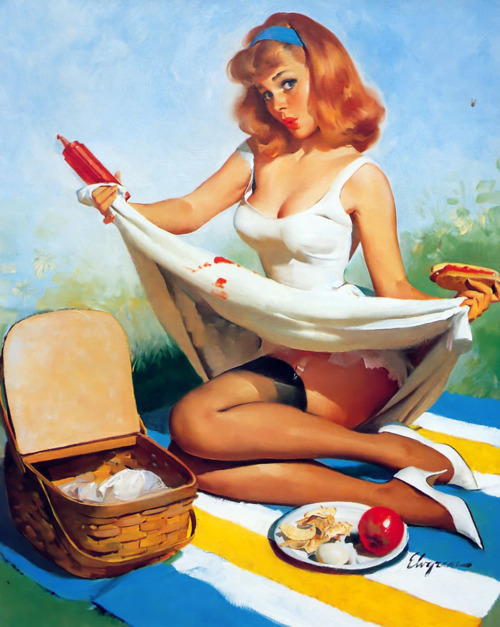 Pin-up art often graced garage walls, industrial factories, barbershops, or other places where men dominated the w Pinup art often graced garage walls, industrial factories, barbershops, or other places where men presume dominated the working world in the 1940s...
Pin-up art often graced garage walls, industrial factories, barbershops, or other places where men dominated the w Pinup art often graced garage walls, industrial factories, barbershops, or other places where men presume dominated the working world in the 1940s...
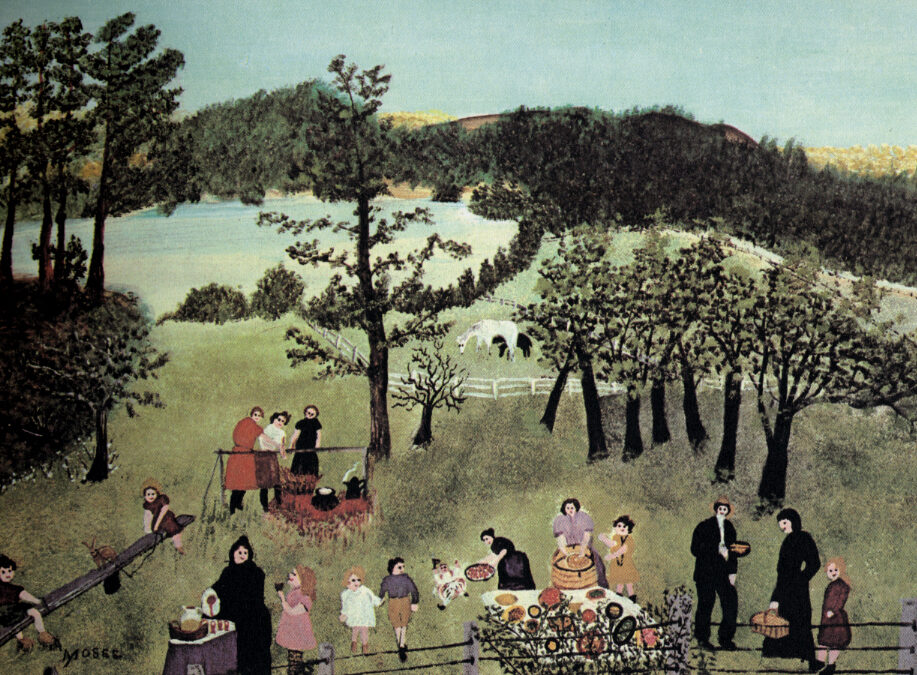 Anna Mary Robertson Moses, aka Grandma Moses, is an American primitive artist whose paintings convey a strong pastoral sentimentality. In all her paintings, the subjects are the people of her town, Hoosic Falls, NY, whose activities she celebrates. The Family Picnic...
Anna Mary Robertson Moses, aka Grandma Moses, is an American primitive artist whose paintings convey a strong pastoral sentimentality. In all her paintings, the subjects are the people of her town, Hoosic Falls, NY, whose activities she celebrates. The Family Picnic...
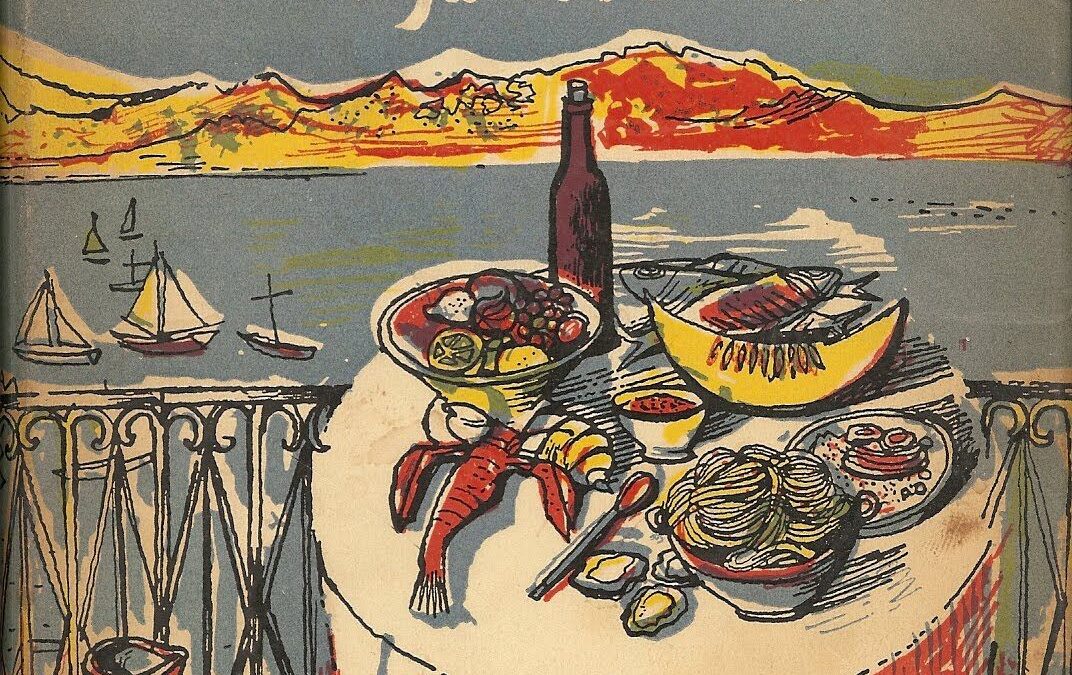 David’s favorite picnic food is tian. She asserts that it’s simple for the experienced cook, especially if you have a tian, the Provençal earthenware casserole it is cooked in. You also need freshly baked bread, butter, cheese, and wine. David’s...
David’s favorite picnic food is tian. She asserts that it’s simple for the experienced cook, especially if you have a tian, the Provençal earthenware casserole it is cooked in. You also need freshly baked bread, butter, cheese, and wine. David’s...
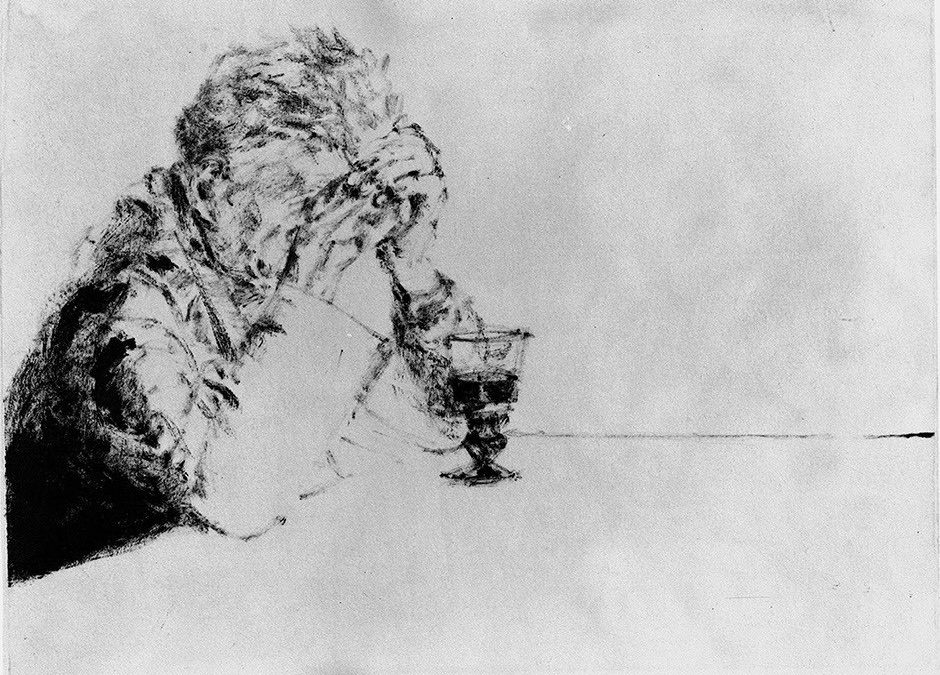 Time and details in Beckett’s Malone Dies are contradictory and often obscure. Events of the narrative are confusing, especially as it reaches a bloody climax that ends when Malone hacks six to death at a picnic. The picnic is narrated by the protagonist Malone...
Time and details in Beckett’s Malone Dies are contradictory and often obscure. Events of the narrative are confusing, especially as it reaches a bloody climax that ends when Malone hacks six to death at a picnic. The picnic is narrated by the protagonist Malone...
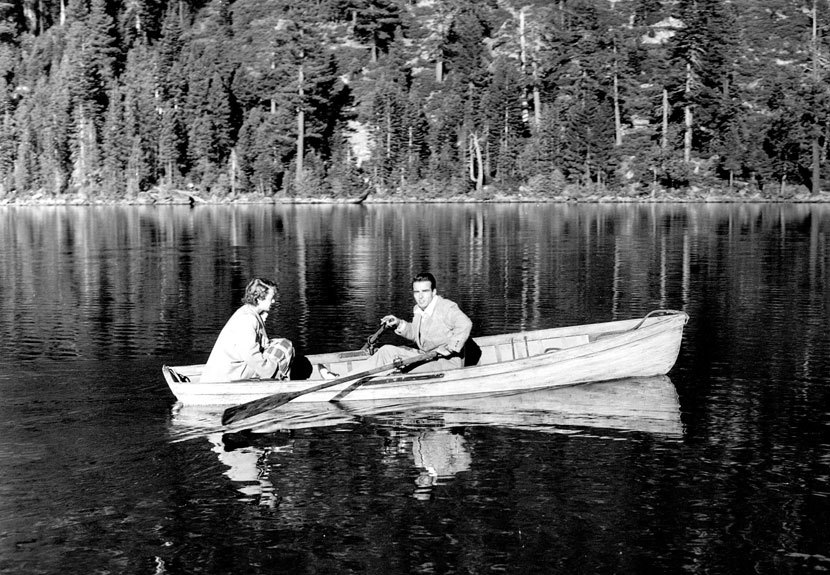 Stevens’s A Place in the Sun is a rework of Dreiser’s An American Tragedy. He renames the characters, too, so that Clyde Griffiths becomes George Eastman. It’s like renaming Dorothy in The Wizard of Oz or Tarzan. He and his screenwriters are emphatic...
Stevens’s A Place in the Sun is a rework of Dreiser’s An American Tragedy. He renames the characters, too, so that Clyde Griffiths becomes George Eastman. It’s like renaming Dorothy in The Wizard of Oz or Tarzan. He and his screenwriters are emphatic...
 David realized the elements of her ideal and described it in “Eating out in Provincial France.” “There has to be water,” she declares, “and from that point of view, France is wonderful picnic country, so rich in magnificent rivers,...
David realized the elements of her ideal and described it in “Eating out in Provincial France.” “There has to be water,” she declares, “and from that point of view, France is wonderful picnic country, so rich in magnificent rivers,...
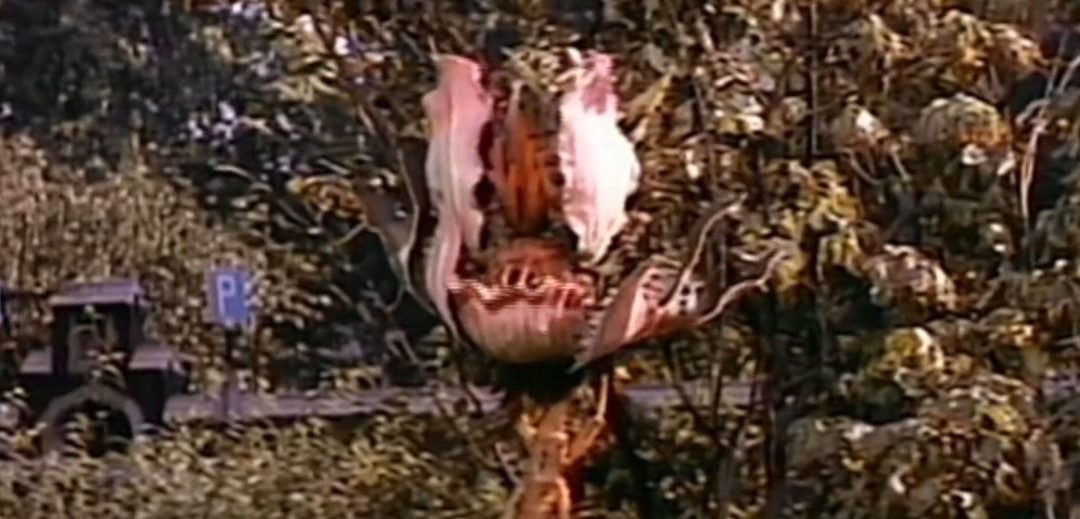 Bill Masen and Josella Platon, exhausted survivors of vicious triffids, mutant plants with a taste for human flesh and blood, are stranded in a ruined landscape of Southampton. Wistfully, they are waiting to escape to Isle of Wight, a new Eden, which has been cleared...
Bill Masen and Josella Platon, exhausted survivors of vicious triffids, mutant plants with a taste for human flesh and blood, are stranded in a ruined landscape of Southampton. Wistfully, they are waiting to escape to Isle of Wight, a new Eden, which has been cleared...
 Stevens’s A Place in the Sun is a rework of Dreiser’s An American Tragedy. He renames the characters, too, so that Clyde Griffiths becomes George Eastman. It’s like renaming Dorothy in The Wizard of Oz or Tarzan. He and his screenwriters are emphatic...
Stevens’s A Place in the Sun is a rework of Dreiser’s An American Tragedy. He renames the characters, too, so that Clyde Griffiths becomes George Eastman. It’s like renaming Dorothy in The Wizard of Oz or Tarzan. He and his screenwriters are emphatic...
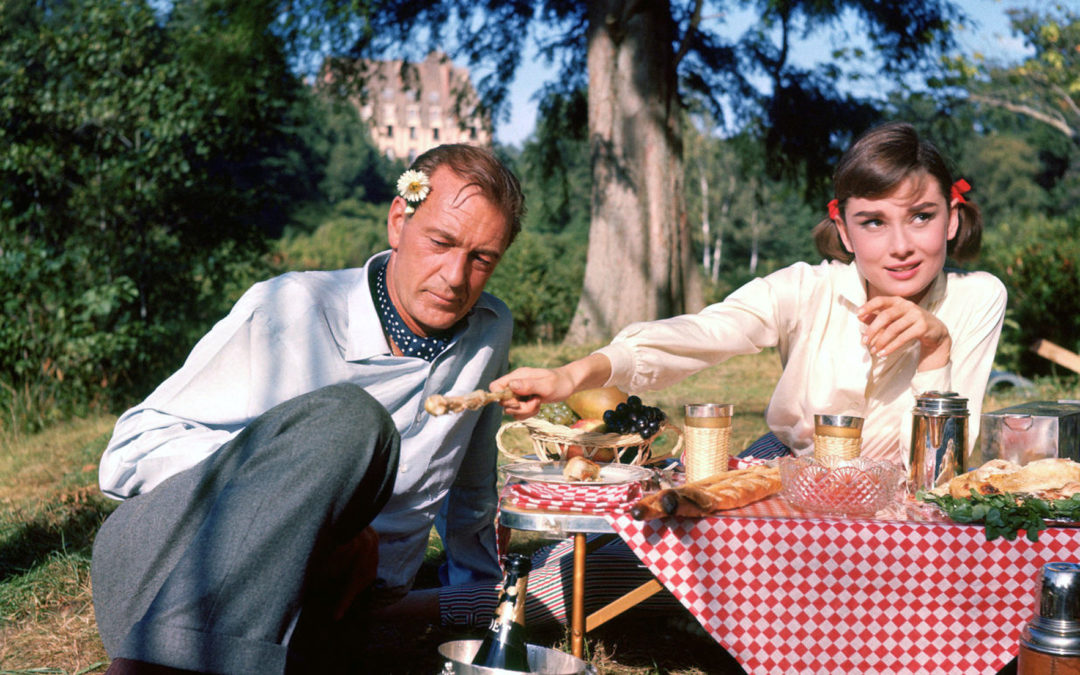 Wilder added the picnic to Love in the Afternoon as a setting for comic action and romantic courtship. His sources for the film Paul Anet’s Ariene, juene file Russe (1920), and Paul Czinner’s film adaption The Loves of Ariene (1931) do not have picnics....
Wilder added the picnic to Love in the Afternoon as a setting for comic action and romantic courtship. His sources for the film Paul Anet’s Ariene, juene file Russe (1920), and Paul Czinner’s film adaption The Loves of Ariene (1931) do not have picnics....
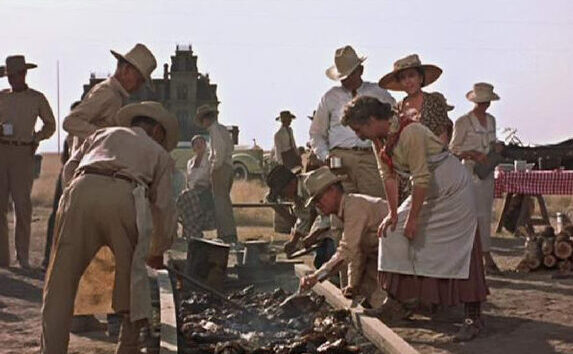 Giant is Ferber’s novel about how a Virginia belle, Leslie Lynton, learns to be a Texan. Among her lessons is what to eat during a Texas-style picnic at her husband Reata, her husband Bick Jordan’s ranch. At first, Leslie realizes what she is looking at is...
Giant is Ferber’s novel about how a Virginia belle, Leslie Lynton, learns to be a Texan. Among her lessons is what to eat during a Texas-style picnic at her husband Reata, her husband Bick Jordan’s ranch. At first, Leslie realizes what she is looking at is...
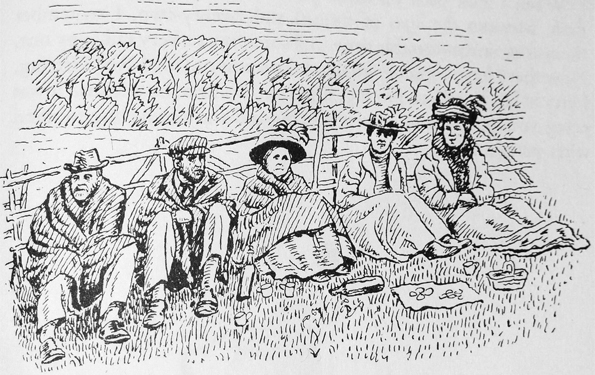 “Heroic Survivors of the Picnic.” is Gwen Raverat’s bittersweet memory of a miserable picnic. It’s the next-to-last anecdote in her memoir Period Piece: A Cambridge Childhood. I think she means to suggest that life was no picnic but that she...
“Heroic Survivors of the Picnic.” is Gwen Raverat’s bittersweet memory of a miserable picnic. It’s the next-to-last anecdote in her memoir Period Piece: A Cambridge Childhood. I think she means to suggest that life was no picnic but that she...
 Benuzzi’s original title for his memoir was Fuga sul Kenya – 17 giorni di liberta [Escape on Kenya – 17 days of liberty]. But being deeply impressed by Vivienne de Watteville’s Speak to the Earth, her memoir of camping on Mount Kenya, * he renamed the...
Benuzzi’s original title for his memoir was Fuga sul Kenya – 17 giorni di liberta [Escape on Kenya – 17 days of liberty]. But being deeply impressed by Vivienne de Watteville’s Speak to the Earth, her memoir of camping on Mount Kenya, * he renamed the...



![Laurent de Brunhoff’s Babar’s Picnic [Pique-nique Chez Babar] (1949)](https://picnicwit.com/wp-content/uploads/2014/01/Laurent-de-Brunhoff.-Babars-Picnic-1949-1080x675.jpg)

















